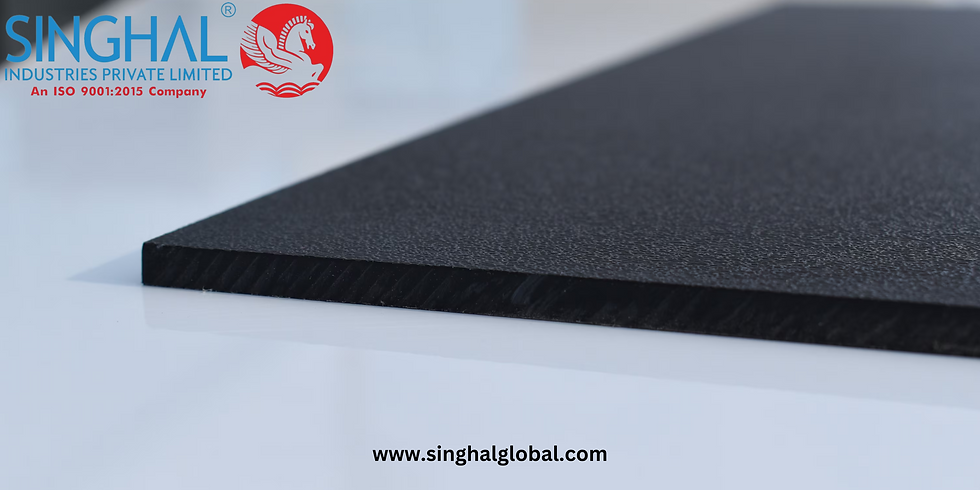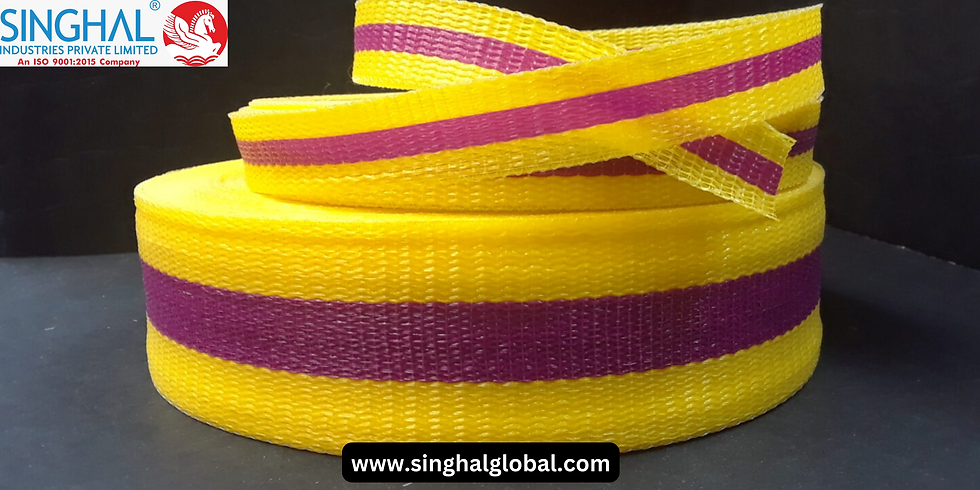Unlocking Innovation: Redefining Convenience with Eco-Friendly Alternatives to HDPE Plastic Bags
- singhalglobal group

- Jun 3, 2023
- 3 min read

Introduction:
In today's environmentally conscious world, the detrimental effects of plastic pollution have become a pressing concern. One of the most significant contributors to this problem is the widespread use of high-density polyethylene (HDPE) plastic bags.
However, innovation has paved the way for eco-friendly alternatives that redefine convenience while mitigating environmental impact. This article explores the development of sustainable alternatives to HDPE plastic bags, highlighting their benefits, and shedding light on how these innovations are shaping a greener future.
The Problem with HDPE Plastic Bags:
HDPE bags have long been favored for their convenience and affordability. However, their production requires large amounts of fossil fuels, contributing to carbon emissions and climate change.

Moreover, their durability leads to persistent litter and poses a significant threat to wildlife and ecosystems. Recognizing these environmental consequences, consumers, businesses, and policymakers are increasingly demanding sustainable alternatives that prioritize the planet's well-being without compromising convenience.
Innovative Solutions: Biodegradable and Compostable Bags :
One promising alternative to HDPE plastic bags is the development of biodegradable and compostable bags. These innovative bags are made from plant-based materials such as cornstarch, cassava, or sugarcane, which decompose naturally over time, leaving behind no harmful residue.
Biodegradable bags break down into simpler compounds through the action of microorganisms, while compostable bags are designed to degrade within specific composting conditions.

Moreover, they pose no threat to wildlife, as their decomposition does not release toxic substances. Additionally, these bags can be composted along with organic waste, contributing to the production of nutrient-rich compost for agriculture.
Reusable Bags: A Sustainable Option :
Another innovative solution lies in the promotion of reusable bags. These bags are typically made from durable materials like cotton, jute, or recycled materials, making them a long-lasting and sustainable choice.
Reusable bags offer multiple benefits over HDPE plastic bags Manufacture. Firstly, they significantly reduce plastic waste by encouraging consumers to replace single-use bags with a more durable option. Secondly, reusable bags are often designed to be foldable and lightweight, allowing for easy storage and transport.

Furthermore, reusable bags are available in various sizes and styles, catering to different shopping needs. Many retailers offer incentives, such as discounts or loyalty points, to encourage consumers to bring their own bags. These initiatives not only promote sustainable practices but also raise awareness about the environmental impact of plastic bags.
Conclusion :
The widespread adoption of eco-friendly alternatives to HDPE plastic bags is redefining convenience while addressing the urgent need for sustainable practices.
Biodegradable and compostable bags provide a solution that minimizes environmental harm, reduces carbon emissions, and promotes the circular economy. Additionally, reusable bags offer a practical and durable alternative, reducing plastic waste and encouraging responsible consumer behavior.
By embracing these innovations, individuals, businesses, and policymakers can contribute to a greener future. Ultimately, redefining convenience with eco-friendly alternatives to HDPE plastic bags is a crucial step towards preserving the planet for generations to come.
Useful Articles Link



Comments